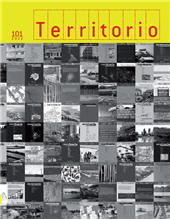The role of narratives in the preservation of post-war built legacies in Budapest
7-18 p.
Hungarian professionals have highlighted the vulnerability of postwar built legacies in Budapest. Their reference point is the recent transformation of central areas showing a significant number of demolitions and a small number of conservative refurbishments. This is commonly attributed to the narratives of revisionist memory politics and/or the stigma of architecture built under state socialism. In contrast, professional activism and recent official listings have indicated a change of paradigms towards the extension of the official patrimonial acknowledgement to postwar built legacies. Throughout the case of the House of Diplomats, this article presents the origins of diverging narratives and discusses their impact as risk or potential in architectural preservation. [Publisher's text].
Professionisti ungheresi hanno evidenziato la vulnerabilità del patrimonio costruito nel dopoguerra a Budapest. Il principale punto di riferimento è l'attuale trasformazione delle aree centrali che dimostra un numero significativo di demolizioni e un numero irrilevante di ristrutturazioni conservative. Questo è spesso attribuito a narrative di una politica revisionista e/o allo stigma dell'architettura costruita durante il socialismo. L'attivismo professionale e le recenti iniziative di tutela, invece, indicano un cambio di paradigma verso la patrimonializzazione dei beni costruiti nel dopoguerra. Attraverso il caso della Casa dei diplomatici, l'articolo espone le origini delle narrative divergenti e discute del loro impatto come rischio o potenziale nella conservazione architettonica. [Testo dell'editore].
Is part of
Territorio : 101, 2, 2022-
Articles from the same issue (available individually)
-
Information
ISSN: 2239-6330
KEYWORDS
- patrimonio costruito nel dopoguerra, patrimonio dissonante, Budapest
- postwar built legacies, dissonant heritage, Budapest


